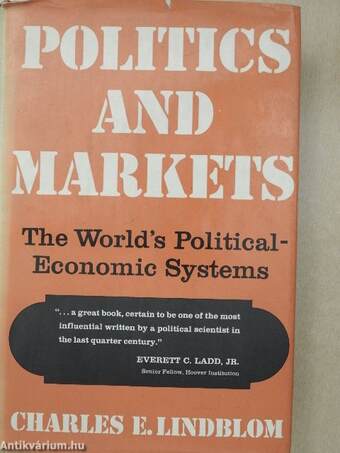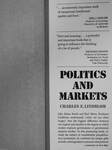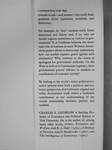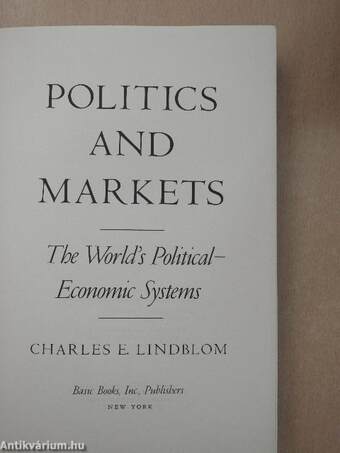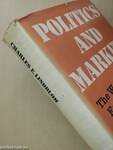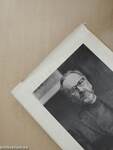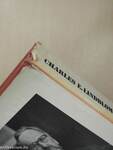1.068.031
kiadvánnyal nyújtjuk Magyarország legnagyobb antikvár könyv-kínálatát

VISSZA
A TETEJÉRE
JAVASLATOKÉszre-
vételek
Politics and Markets
The World's Political-Economic Systems
| Kiadó: | Basic Books, Inc., Publishers |
|---|---|
| Kiadás helye: | New York |
| Kiadás éve: | |
| Kötés típusa: | Vászon |
| Oldalszám: | 403 oldal |
| Sorozatcím: | Basic Books |
| Kötetszám: | |
| Nyelv: | Angol |
| Méret: | 24 cm x 16 cm |
| ISBN: | 0-465-05957-0 |
naponta értesítjük a beérkező friss
kiadványokról
naponta értesítjük a beérkező friss
kiadványokról
Fülszöveg
" an extremely important work
of exceptional intellectual quality and force."
NEILJ.SMELSER Professor of Sociology University of California at Berkeley
"New and stunning a powerful and important book that is going to influence the thinking of a lot of people."
RICHARD NELSON Professor of Economics Institution for Social and Policy Studies Yale University
POLITICS
am)
markms
CIIAULKS ILLIISDBLOM
Like Adam Smith and Karl Marx, Professor Lindblom understands (what we too often forget) that the biggest difference between one regime and another is the degree to which market replaces government or government replaces market. In this pioneering book, already the subject of considerable prepublica-tion excitement, he combines his unique gifts as both a distinguished economist and political (continued on back flap)
(continued from front flap)
scientist to ask—and answer—the really basic
questions about capitalism, socialism, and
democracy.
For example, do "free" markets... Tovább
Fülszöveg
" an extremely important work
of exceptional intellectual quality and force."
NEILJ.SMELSER Professor of Sociology University of California at Berkeley
"New and stunning a powerful and important book that is going to influence the thinking of a lot of people."
RICHARD NELSON Professor of Economics Institution for Social and Policy Studies Yale University
POLITICS
am)
markms
CIIAULKS ILLIISDBLOM
Like Adam Smith and Karl Marx, Professor Lindblom understands (what we too often forget) that the biggest difference between one regime and another is the degree to which market replaces government or government replaces market. In this pioneering book, already the subject of considerable prepublica-tion excitement, he combines his unique gifts as both a distinguished economist and political (continued on back flap)
(continued from front flap)
scientist to ask—and answer—the really basic
questions about capitalism, socialism, and
democracy.
For example, do "free" markets really foster democracy and Hberty and, if so, why are market regimes sometimes as coercive as governments? If, as Lindblom believes, the dominant role of business in most Western democracies poses a threat to democratic institutions, how can market regimes guard against such dominance? Why, contrary to the claims of apologists for government authority (in the West as well as in Communist regimes), have governments proved inferior to markets as coordinators of economic activity?
By looking at the world's major political-economic systems from both a political and economic perspective, this brilliantly original and richly documented work makes a landmark contribution to our understanding of the crucial relationship between politics and markets.
CHARLES E. LINDBLOM is Sterling Professor of Economics and Political Science at Yale University. He is the author of, among many other works, Politics, Economics and Welfare, with R. A. Dahl (1953), Strategy of Decision, with D. Braybrooke (1963 ), and The Intelligence of Democracy (1965 ). Vissza
Témakörök
- Közgazdaságtan > Gazdaságpolitika
- Közgazdaságtan > Általános > Mikroökonómia
- Idegennyelv > Idegennyelvű könyvek > Angol > Közgazdaságtan > Gazdaságpolitika
- Idegennyelv > Idegennyelvű könyvek > Angol > Közgazdaságtan > Általános > Mikroökonómia
- Közgazdaságtan > Vállalkozások > Általában
- Idegennyelv > Idegennyelvű könyvek > Angol > Közgazdaságtan > Vállalkozások > Általában



